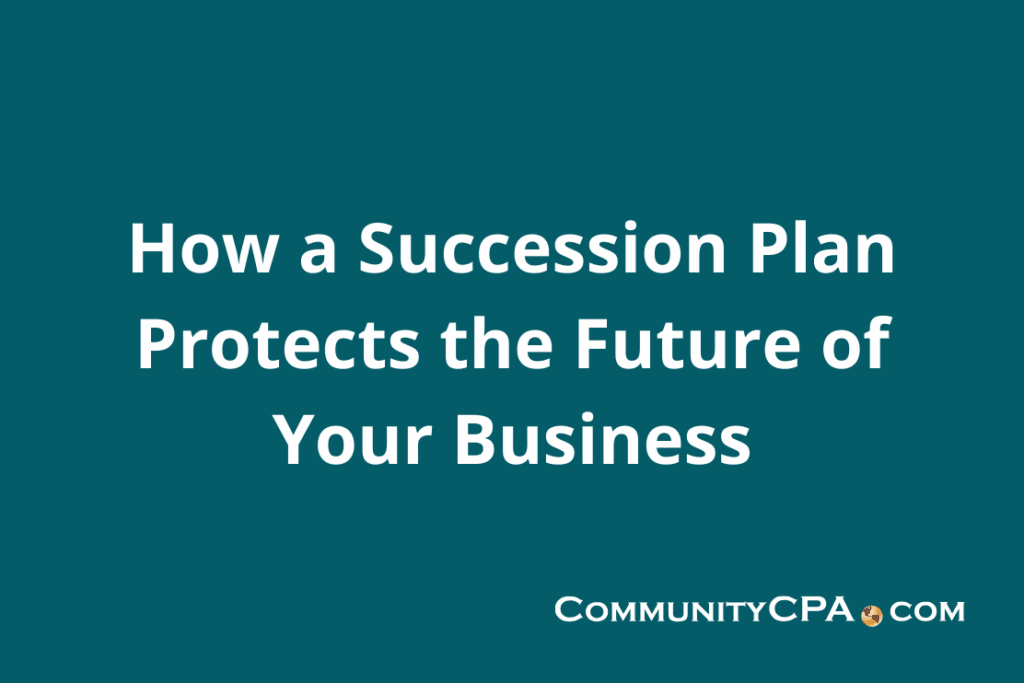Secure your legacy with a strong business succession plan
As a business owner, safeguarding the future of your company should be a central priority. While day-to-day operations often consume your time, planning for the long-term sustainability of your business is equally crucial. One of the most effective ways to ensure your business survives leadership changes and unforeseen circumstances is through a well-developed succession plan. Here, we’ll explore how succession planning protects your company’s future and provides stability for generations to come.
1. Ensuring Business Continuity
A succession plan acts as a roadmap for transferring leadership and ownership of your business in an organized and seamless manner. Without a clear plan, businesses often face hurdles during leadership transitions, whether due to retirement, illness, or unexpected events. These disruptions can lead to financial losses, employee uncertainty, and customer dissatisfaction.
A comprehensive succession plan mitigates these risks. It identifies who will take over, outlines their responsibilities, and sets up a structured transition process. This ensures your business remains stable and operational even during major changes.
2. Minimizing Financial Risks
When business ownership changes unexpectedly, the lack of preparation can lead to significant financial losses. A succession plan safeguards against this by addressing critical financial considerations, such as:
- Tax implications related to transferring ownership.
- Continuity of cash flow during leadership transitions.
- Valuation of the business to facilitate equitable ownership handovers.
By collaborating with our team, you can align your succession plan with broader financial strategies, ensuring long-term economic health for your business.
3. Promoting Leadership Development
One of the most pivotal aspects of succession planning is identifying and training the next generation of leaders. Whether your next leader is a family member, a trusted employee, or an external hire, the earlier they are prepared for their role, the smoother the transition will be. A succession plan often includes leadership development programs, mentoring opportunities, and skill enhancement strategies to groom successors for future responsibilities.
This focused effort on leadership readiness ensures that your successor has the capability, confidence, and commitment to lead the business forward, maintaining a high standard of performance.
4. Retaining and Motivating Key Talent
Uncertainty about the future of the business can lead to the departure of key employees. A clear succession plan reassures your team that you’ve taken steps to safeguard the company’s future, encouraging loyalty and long-term commitment. Additionally, including key personnel in the planning process fosters trust and ensures that invaluable institutional knowledge is retained as part of the transition process.
Such proactive planning can strengthen your company culture, demonstrating that you value stability and the contributions of your employees.
5. Protecting the Legacy of Your Business
For businesses that are closely tied to the vision and values established by their founders, a succession plan ensures that this legacy is preserved and carried forward. Documenting your mission, vision, and strategic goals as part of the succession planning process allows your successor to remain aligned with the principles that define your business.
This is especially important for family-owned businesses, where maintaining the integrity of the family’s entrepreneurial spirit often becomes a central motivation for succession planning.
6. Addressing Legal and Regulatory Requirements
Succession planning includes careful attention to legal and regulatory considerations, such as:
- Drafting agreements that clarify business ownership and operational roles.
- Reviewing partnership or shareholder agreements.
- Complying with employment and labor laws during transitional periods.
By addressing these aspects ahead of time, businesses can avoid potential disputes and legal complications, allowing for a smoother transfer of ownership.
7. Providing Peace of Mind
A succession plan is not only an investment in the future of your business but also an investment in peace of mind. Knowing that your life’s work is safeguarded against unexpected events allows you to focus on growth and day-to-day operations without worry.
At Community CPA, we can help businesses navigate the complexities of succession planning. Our expert team can guide you through financial modeling, tax strategies, and legal considerations to ensure that your succession plan is robust and effective. Partner with us today to build a plan that fortifies your company’s future and ensures a smooth transition for generations to come.
Check out our YouTube channel for further guidance on estate planning, accounting, payroll, taxes, and more.

